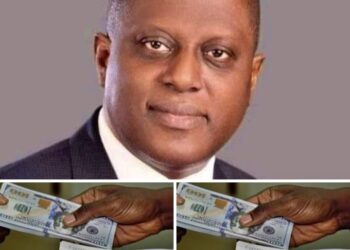Nigeria’s population is growing at 2.6% and the economy is growing at 2.4%, which essentially means a 0.2% shrink. This begs the question of whether we are waiting for when, and not if, the country will implode.”
Nigeria is currently faced with a choice of whether to re-elect President Muhammadu Buhari or to replace him with former vice president Atiku Abubakar. Each candidate has set out lofty goals in well prepared manifestos – Buhari’s Next Level and Atiku’s Get Nigeria Working Again. Each plan outlines goals that tally with the key challenges facing Nigeria and while there are key differences in the detail of the plans, the major distinguishing element is their track record including in particular on corruption. The challenge facing the country is illustrated by the inability of the Independent National Electoral Commission (INEC) to organise an election and the postponement of the polls with hours to go before voting started. This article attempts to explore the context of the current election debate and compare the two leading presidential candidates.
Some have argued that recent reform, in particular the creation of a single treasury account, has stifled the flow of cash in many sectors ultimately impacting the economy by preventing corrupt civil servants and contractors from functioning in a business-as-usual mode. There are several potential ways to dig the country out of the current hole it is in. The option, articulated by the PDP presidential candidate, Atiku, is to revert to a fantastically corrupt state and open up the tap so that resources flow, while attempting to limit the extent of corruption by only allowing “friends” to benefit directly. The hypothesis is that the rest of the country benefits indirectly through the largesse of these friends and their spending on the economy and a more open market approach.
The alternative model, proposed by Buhari, the current president is to focus on tackling insecurity, taking a zero-tolerance approach to corruption and ensuring fiscal discipline while investing in major infrastructure projects. The Buhari manifesto outlines a range of goals that again tackle the major challenges facing Nigeria. Judging his performance is complicated by the recession that started after he was sworn in due to a fall in the price of oil.
The main criticisms against the Buhari model are that there is a so called “cabal” which wields undue power, a perception of lopsided targeting of anti-corruption actions at political opponents, and sluggish growth since 2015.
One might think the Keynes versus Hayek debate following the 2008 global economic crash is relevant to Nigeria’s recent economic slump. John Maynard Keynes, a Cambridge economist, posited that “you cannot cut your way out of a slump; you have to grow your way out” but is this realistic if the crash in the Nigerian scenario is due to a lack of funds to spend. Would it be acceptable to borrow and spend on a consumption-driven growth in the context of a semi-parasitic private sector. By contrast, Friedrich August Hayek – a London School of Economics professor, argued that the slump of the 1930s is the reality and was caused by excessive credit creation.
While Hayek eventually became the less favoured of the two in Western economic theory, it is difficult to see how the theory applies to #Nigeria’s 2015/6 slump because we do not have a productive functioning economy in the true sense. The #Nigerian private sector has very limited productivity. Most businesses are either providing a service locally or are entirely reliant on the oil income of the country. The key driver of the economy is spending of money acquired through #Nigeria’s oil revenue usually by corrupt civil servants and associated “contractors” who distribute their ill gotten wealth to their local beer parlour, girlfriends, the local market and the rest of the economy keeping the Nigerian machine ticking along.
Whatever economic theory we eventually move forward with as the basis of policy, we need to have a more productive private sector, a zero-tolerance approach to corruption and greater equity in the distribution of wealth in order to prevent future social violence. Previous phases of rapid growth in Nigeria have always only yielded benefits to a privileged few and not to the majority of the masses. We should explore an adapted Nordic economic model which has socialist and capitalist elements.
Nation-building takes time – religion, tribe and other vested interests have to give way to a common purpose. We all have to buy-in to the development agenda and give it time to work. The Atiku model is not a viable option. While the Buhari model is insufficient, it is the necessary first step in the right direction. The Buhari approach has halted the retrogression of the last 30 years, confronted corruption with varying degrees of success, started fixing security issues and is tackling the lack of infrastructure in the face of a significant decline in oil prices which caused a recession. Perhaps more spending would have led to a quicker return to growth but it would have been the wrong sort of growth – consumption-driven and unsustainable.
All nations have only ever emerged from poverty to become wealthy through concerted self-driven change and not by waiting for a foreign interest to “help” – Nigeria is no exception. We need to move forward and to do so using the most egalitarian development framework possible – one that is about shared prosperity, eliminating deprivation and ensuring multidimensional development and the basic rights of all citizens. We have a choice – to embrace change and progress or revert to a kleptocracy. I hope we chose the former and demand of Buhari to build on the last four years.
Professor Abubakar writes via [email protected]



